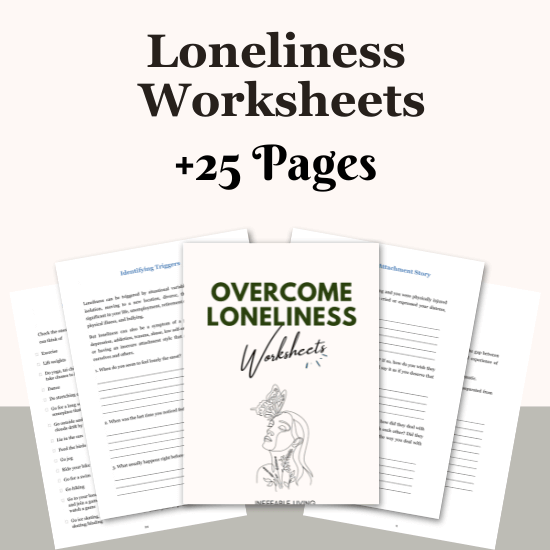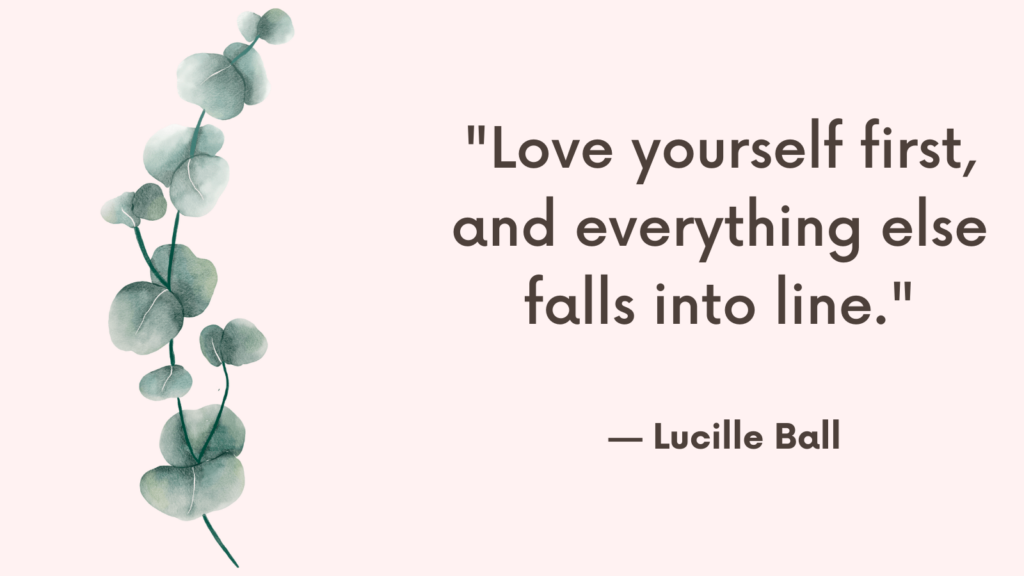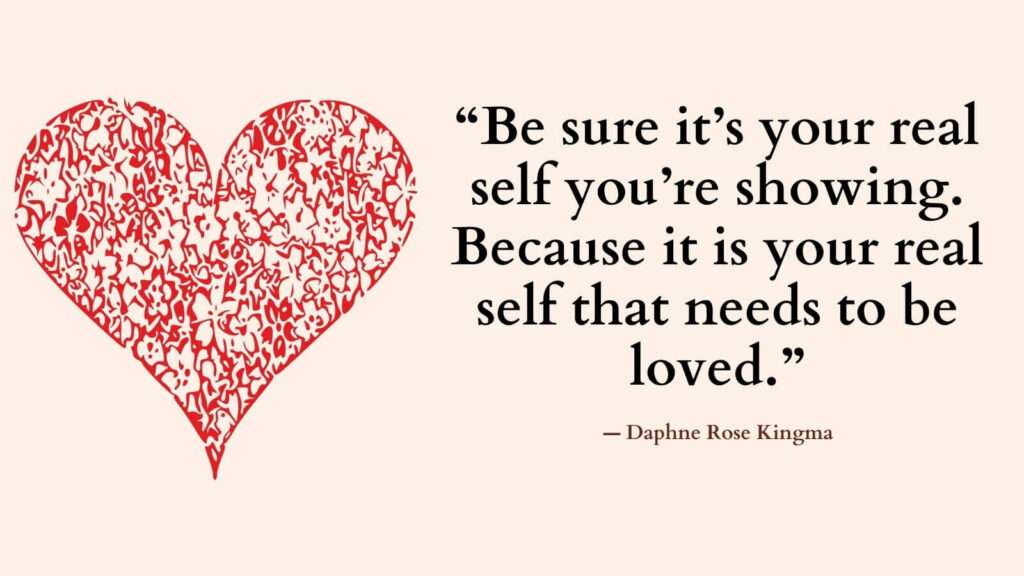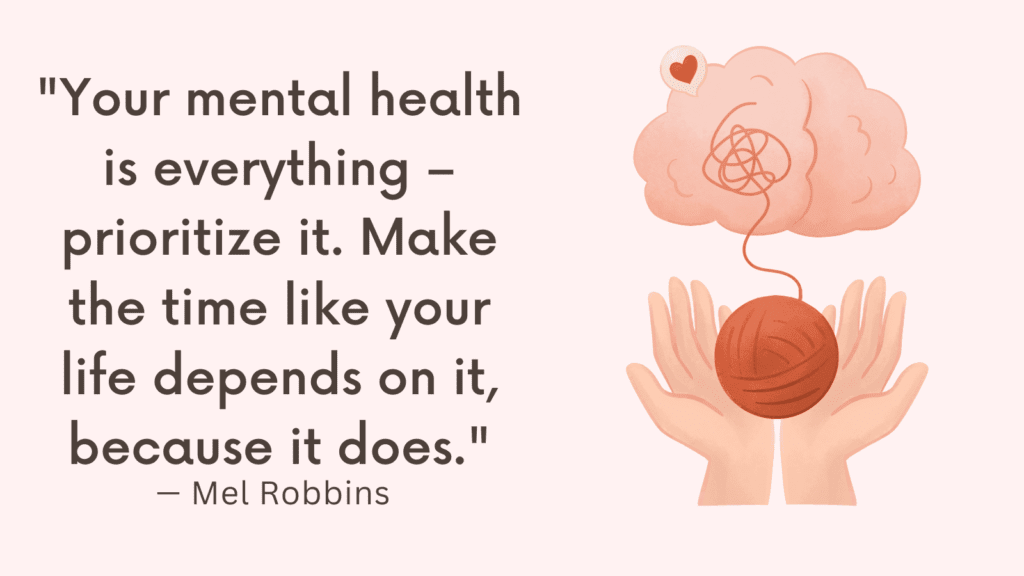Valentine’s Day can amplify feelings of loneliness, especially with the focus on romance and companionship.
While this day may be challenging, there are ways to ease loneliness and create a sense of connection, joy, and self-compassion.
Here are some meaningful strategies to help you cope with loneliness on Valentine’s Day.
Understanding Why Valentine’s Day Can Trigger Loneliness
Valentine’s Day is often painted as a joyful, romantic celebration, but for many people, it can stir up feelings of loneliness, sadness, or even grief. Whether you’re single, in a strained relationship, grieving a loss, or simply feeling disconnected, understanding the emotional layers behind this holiday can help you navigate it with more self-compassion and intention.
1. Cultural Pressure to Be in a Relationship
Everywhere you look — from advertisements to social media — Valentine’s Day bombards you with the message that being in love is the ultimate sign of worth and happiness. This cultural pressure can amplify feelings of inadequacy or loneliness, especially if you’re not currently partnered or if your love life doesn’t match society’s romantic ideals.
2. Comparison to Others’ Highlight Reels
Seeing other people post photos of romantic dinners, gifts, or couple celebrations can trigger painful comparisons, making you feel like you’re missing out or that your own life is somehow lacking. Even when you logically know these are curated snapshots, emotionally they can still stir up longing or self-doubt.
3. Idealization of Romantic Love
Valentine’s Day often places romantic love on a pedestal, making other forms of love — like friendships, family, or self-love — feel invisible or less important. This narrow focus can deepen feelings of isolation, especially if your life is currently rich in non-romantic but meaningful connections.
4. Societal Assumptions About Singleness
For singles, Valentine’s Day can bring up societal stereotypes that single life is inherently lonely or incomplete. These messages can subtly undermine your confidence, even if you normally feel content and self-sufficient.
How to Cope with Loneliness on Valentine’s Day?
1. Shift the Focus to Self-Love and Self-Care
Valentine’s Day doesn’t have to be solely about romantic love; it can be an opportunity to nurture yourself. Prioritizing self-love and self-care helps you feel valued, appreciated, and connected with yourself.
– How to Practice: Dedicate the day to activities that make you feel good—like a relaxing bath, treating yourself to a nice meal, or engaging in a hobby you enjoy. Take time to reflect on qualities you love about yourself, acknowledging your worth and uniqueness.
Related: Am I Lonely Quiz (+ Top 5 Tips To Overcome Loneliness)
2. Connect with Friends and Family
Loneliness often eases when we reach out to the people we care about. Valentine’s Day can be a day to celebrate all forms of love, including the bonds you share with friends and family.
– How to Practice: Reach out with a phone call, message, or video chat to connect with loved ones. You could even arrange a “Galentine’s” or “Palentine’s” celebration, whether in person or virtually, to spend quality time with people who uplift and support you.
Related: Living Alone For The First Time? Top 8 Tips to Cope
3. Practice Gratitude for the Relationships You Have
Focusing on gratitude can shift your perspective from what’s missing to what’s present in your life. Reflecting on the meaningful connections you already have, whether they’re with friends, family, or colleagues, can foster a sense of belonging.
– How to Practice: Make a list of people or relationships you’re grateful for and why they matter to you. You might also write down small ways they’ve positively impacted your life. This gratitude practice can reinforce the love and support you already have.
Related: 8 Tips on Overcoming Loneliness After the Death of Your Husband, Wife, or Partner
4. Plan a Special Day for Yourself
Valentine’s Day doesn’t have to be about waiting for someone else to make it special. Taking the initiative to plan a day filled with activities you enjoy can help you feel empowered and excited.
– How to Practice: Create a “date” itinerary for yourself, including activities that make you happy, like visiting a museum, watching a favorite movie, or going for a scenic walk. By treating the day as a celebration of your own company, you can create meaningful memories.
Related: What To Do On Thanksgiving Without Family: Top 8 Tips
5. Limit Social Media Time
Social media is often filled with curated images of Valentine’s celebrations, which can intensify feelings of loneliness or comparison. Taking a break from social media can help you stay focused on your own experience and reduce anxiety.
– How to Practice: Set a time limit for social media, or take a break from it entirely on Valentine’s Day. Use that time to engage in real-life activities or connect with people directly, rather than viewing idealized portrayals of the holiday.
Related: Best 10 Nonfiction Books About Loneliness
6. Engage in Acts of Kindness
Helping others can ease feelings of loneliness and provide a sense of purpose. Acts of kindness remind us of our ability to positively impact others, fostering a sense of connection and meaning.
– How to Practice: Consider volunteering for a local organization, sending a thoughtful message to someone who might also feel lonely, or surprising a neighbor with a small gift. Even small acts of kindness can uplift your mood and create a shared sense of connection.
Related: How to Reverse the Damage of Social Isolation on Your Brain?
7. Explore Creative Outlets
Creative activities like writing, painting, cooking, or crafting can help you express your emotions and channel your energy in positive ways. Creativity also allows you to focus on the present moment, easing loneliness.
– How to Practice: Choose a creative activity you enjoy or want to try, and set aside time to immerse yourself in it. Whether you’re creating something personal or just for fun, the act of creating can be fulfilling and a reminder of your inner strength.
Related: Best 50 Journal Prompts For Loneliness
8. Reframe the Day as a Celebration of All Kinds of Love
Valentine’s Day doesn’t have to be exclusively romantic; it can be a time to celebrate love in all its forms. This reframe helps you focus on the beauty of friendships, family bonds, and even self-love.
– How to Practice: Take time to celebrate the different kinds of love you experience. Write a gratitude note to a friend, volunteer in your community, or show yourself love through self-compassionate acts. Shifting the focus can help you find joy and meaning in the day.
Related: Journal Prompts For Depression (+FREE Depression Worksheets PDF)
9. Focus on Mindfulness and Being Present
Loneliness can sometimes be amplified by thoughts about the past or future. Practicing mindfulness helps you stay present, reducing worries or regrets and allowing you to focus on small moments of peace and joy.
– How to Practice: Engage in a mindfulness exercise, such as deep breathing, meditation, or a grounding technique like the 5-4-3-2-1 exercise (naming things you see, touch, hear, smell, and taste). Staying present can ease anxious thoughts and bring you back to the moment.
10. Affirm Your Self-Worth
Loneliness on Valentine’s Day can sometimes bring up feelings of inadequacy or self-doubt. Reminding yourself of your intrinsic worth and value can reinforce self-acceptance and combat negative self-talk.
– How to Practice: Write down affirmations that resonate with you, such as “I am complete as I am” or “I am deserving of love and joy.” Reflect on these affirmations throughout the day, reminding yourself that you are enough, just as you are.
Related: Best 50 Affirmations For Loneliness
11. Make a Plan for the Future That Excites You
Having something to look forward to can help ease loneliness and remind you that joy isn’t limited to one day. Planning a future activity or trip gives you something positive to anticipate.
– How to Practice: Plan a future activity you’re excited about, whether it’s a weekend getaway, a class you want to take, or a fun project. By setting goals or planning something special for yourself, you can stay focused on the possibilities ahead.

Challenging the Myth That Self-Worth Is Tied to Relationship Status
Society often sends the message that being in a romantic relationship is the ultimate sign of success, happiness, and personal value. This myth can seep deeply into your self-image, making you question your worth if you’re single or struggling in love. But your relationship status is not a measure of your worth — and challenging this myth is key to building a stronger, more grounded sense of self.
1. Recognize the Cultural Conditioning
From movies to social media to family expectations, we are surrounded by messages that romantic love is the ultimate goal. It’s important to step back and recognize these messages for what they are: cultural scripts, not universal truths. You have the right to define happiness and fulfillment on your own terms.
2. Understand That Singleness Is Not a Flaw
Being single is not a character defect, a failure, or something to be “fixed.” It’s a valid life stage, sometimes a choice, sometimes circumstantial — and it has nothing to do with whether you are lovable, whole, or successful.
3. Separate Self-Worth From External Validation
Relying on relationship status to feel valuable places your self-worth in the hands of external approval. True self-worth comes from within — from recognizing your inherent value as a person, regardless of who chooses to love or stay with you.
4. Challenge the Belief That Love Completes You
Romantic love can enrich life, but it does not complete you. You are already a full, complex, and valuable person on your own. Believing you are incomplete without a partner sets up an unhealthy dynamic where you seek someone to “fill” you rather than share life with you.
5. Value All Forms of Connection
Deep friendships, family bonds, creative communities, and even your connection with yourself all bring meaning and richness to life. Reducing worth to just romantic partnerships ignores the many other beautiful, fulfilling forms of love you experience.
6. Notice How You Talk to Yourself
If you catch yourself thinking, “I’m unlovable because I’m single,” or “Something must be wrong with me,” challenge these thoughts directly. Ask yourself: Would I say this to a friend I care about? What would I tell them instead?
7. Celebrate Your Personal Growth and Achievements
Your worth is reflected in your values, growth, kindness, creativity, and resilience — not in your relationship label. Take time to recognize and celebrate the unique ways you contribute to the world, regardless of your romantic status.
8. Stop Measuring Against Others’ Highlight Reels
Social media and cultural stories often amplify the idea that being coupled is the ideal. Remember that what you see online is a filtered highlight reel, not a full picture — and comparing yourself to it only feeds unnecessary insecurity.
9. Embrace the Power of Autonomy
Being able to stand in your own life, make your own choices, and cultivate your own joy is a profound strength. Autonomy allows you to enter relationships (if you choose) from a place of fullness, not dependency.
10. Define Your Own Meaning of Worth
At the heart of it, you get to decide what makes your life meaningful and what defines your worth. Whether you’re partnered or single, your value comes from the person you are — your heart, your efforts, your dreams — not from your relationship label.
Conclusion
Coping with loneliness on Valentine’s Day is about honoring your needs, celebrating love in all its forms, and creating a day that reflects your unique spirit.
With these compassionate practices, you can make Valentine’s Day meaningful and fulfilling, regardless of relationship status.



